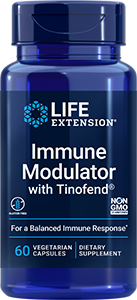- Science & Research
- Science News
- Newsletter
- 2013
- April 9

Newsletter
Newsletter
Reduced Melatonin Levels Linked To Greater Diabetes Risk
Reduced melatonin levels linked to greater diabetes risk
Tuesday, April 9, 2013. The April 3, 2013 issue of the Journal of the American Medical Association reports a link between decreased levels of the hormone melatonin and a greater risk of developing type 2 diabetes. Melatonin is a sleep-inducing hormone produced by the pineal gland in response to darkness. The hormone has been investigated as a preventive or treatment for several conditions in addition to insomnia, including complications associated with diabetes. "Melatonin receptors have been found throughout the body in many tissues including pancreatic islet cells, reflecting the widespread effects of melatonin on physiological functions such as energy metabolism and the regulation of body weight," Ciaran McMullan and colleagues at Brigham and Women's Hospital noted in their introduction to the article. "Loss-of-function mutations in the melatonin receptor are associated with insulin resistance and type 2 diabetes. Additionally, in a cross-sectional analysis of persons without diabetes, lower nocturnal melatonin secretion was associated with increased insulin resistance." The researchers matched 370 women who developed diabetes while enrolled in the Nurses' Health Study with 370 nondiabetic participants. Morning urine samples obtained upon enrollment in 2000 were analyzed for the ratio of 6-sulfoxymelatonin (the major metabolite of melatonin) to creatinine in order to estimate overnight melatonin secretion. Women with diabetes had a 6-sulfatoxymelatonin to creatinine ratio that was significantly lower than that of the control group. Among those whose ratio was among the lowest of the participants, the adjusted risk of developing diabetes was more than twice that of women whose ratio was among the highest group. "This is the first time that an independent association has been established between nocturnal melatonin secretion and type 2 diabetes risk," announced Dr McMullan, who is a researcher in the Renal Division and Kidney Clinical Research Institute at BWH. "Hopefully this study will prompt future research to examine what influences a person's melatonin secretion and what is melatonin's role in altering a person's glucose metabolism and risk of diabetes." "It is interesting to postulate from these data, in combination with prior literature, whether there is a causal role for reduced melatonin secretion in diabetes risk," the authors remark. "Further studies are needed to determine whether increasing melatonin levels (endogenously via prolonged nighttime dark exposure or exogenously via supplementation) can increase insulin sensitivity and decrease the incidence of type 2 diabetes." |
||||||||||||||||
 |
||||||||||||||||
|
||||||||||||||||
|
||||||||||||||||
 |
||||||||||||||||
|
||||||||||||||||
|
||||||||||||||||
The latest news on aging, nutrition, and vitamins
Lab
Testing
How Life Extension lab testing works












